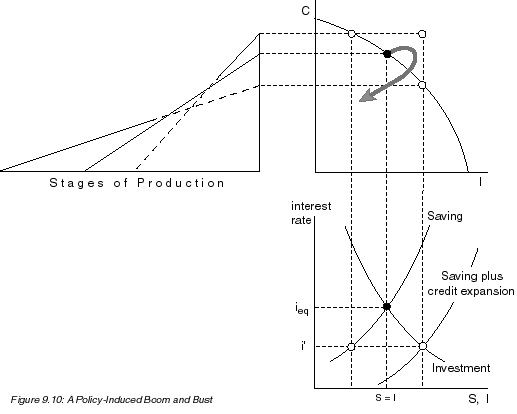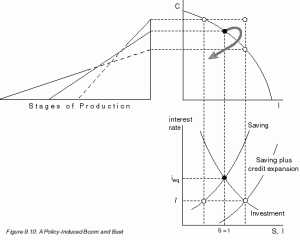Ep. 67 Walter Block and William Barnett on Problems With the Hayekian Triangle

 In a 2006 journal article, “On Hayekian Triangles,” Walter Block and William Barnett lists 14 separate objection to the popular device used (in various forms) by Hayek, Rothbard, and Roger Garrison to illustrate how artificially low interest rates lead to an unsustainable boom. Block concludes that the Hayekian triangle can be salvaged, while Barnett thinks it should be abandoned altogether.
In a 2006 journal article, “On Hayekian Triangles,” Walter Block and William Barnett lists 14 separate objection to the popular device used (in various forms) by Hayek, Rothbard, and Roger Garrison to illustrate how artificially low interest rates lead to an unsustainable boom. Block concludes that the Hayekian triangle can be salvaged, while Barnett thinks it should be abandoned altogether..
.
.
.
.
Mentioned in the Episode and Other Links of Interest:
- Barnett and Block’s (2006) paper critiquing Hayekian triangles.
- University home pages for William Barnett and Walter Block.
- Roger Garrison’s amazing PPT shows, contrasting sustainable and unsustainable growth in Austrian tradition. Also Garrison’s book Time and Money.
- Bob’s (free) study guide to Murray Rothbard’s Man, Economy, and State. In particular, the diagrams on page 97 give a numerical example of how a drop in time preference changes the production structure, in the Austrian tradition.
- Barnett later emailed Bob to clarify that during the interview he had been thinking of Mark Skousen’s book The Structure of Production, and specifically figures 5.14 and 5.15.
- How you can contribute to the Bob Murphy Show.
The audio production for this episode was provided by Podsworth Media.

[…] is the standard audio, and I’m now experimenting with releasing select episodes on my YouTube […]
Could the means of lowering future consumption with lower interest rate be based on new knowledge of estimated lower future value of production. Dr. Murphy, you frequently discuss bubbles due to market manipulation. So the time when the bubble is realized the future consumption would need to be corrected.
Shifting the timeframe out can make sense when time preferences change and allow more/longer term investment, but the reconciling future production predictions with real production value can validate lower future value.
These have to be the most autistic criticisms of the Garrison model I’ve ever heard. The only thing of which Block and Barnett convinced me is that their paper deserved to be ignored.
I never thought someone would be able to talk faster than Walter Block.